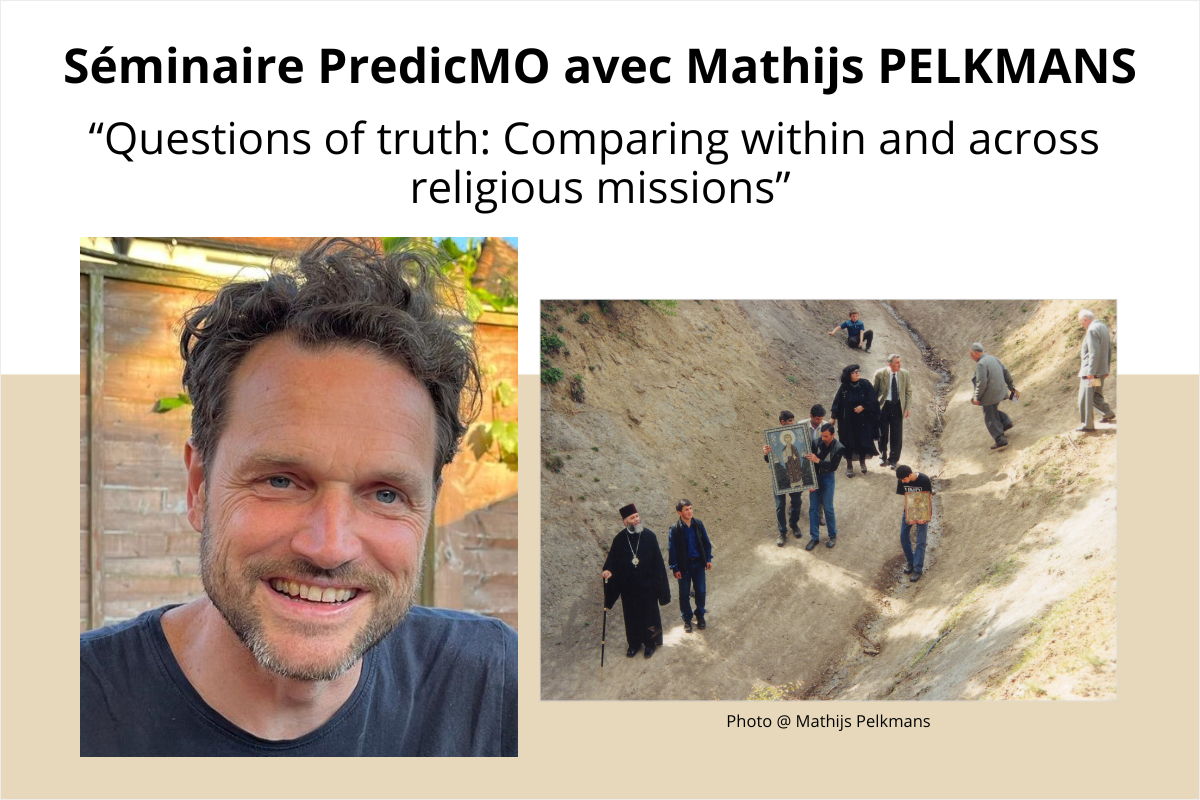Séminaire PredicMO avec Mathijs PELKMANS
Séminaire mensuel du programme PredicMO - Grammaires de la prédication : lexique, cartographie, mise en scène (Moyen-Orient, XIXe-XXIe siècles)
Mardi 10 juin 2025, 13h30-16h, médiathèque de la MMSH, salle Seurat, Aix-en-Provence et en visioconférence.
Lien Zoom / ID de réunion : 925 6227 6408 / Code secret : 786614
“Questions of truth: Comparing within and across religious missions” - Mathijs PELKMANS, London School of Economics and Political Science.
In this paper I draw on fieldwork I carried out in the Caucasus and Central Asia, where I studied Orthodox Christian, Tablighi Muslim, and Evangelical missions, and the dynamics of religious conversion and renewal propelled by them. But instead of focusing on my empirical findings, I will use this paper to explore possibilities of comparison within and across religious missions, starting by acknowledging the formidable obstacles involved. This includes the contested nature of concepts and terms on which such comparative work could be built. My interlocutors in Kyrgyzstan and Georgia rejected the notion of ‘religion’, balked at the idea of ‘conversion’, and denied that they were ‘missionaries’. But while such terms are clearly problematic, adopting my interlocutors’ preferred alternatives would create its own problems, such as potentially confirming ‘Christian truth’ over ‘Muslim corruption’ or vice versa. But instead of attempting to solve this conundrum by developing more ‘neutral’ terms, I will instead allow the explore the biases and disagreements themselves. By tracing disagreement and dissonance in relation to such terms, I hope to illuminate the ideas of truth that speak through them and shed light on the possibilities and impossibilities of comparison within and across religious missions.
Mathijs PELKMANS is Professor of Anthropology at the London School of Economics and Political Science. A specialist of the Caucasus and Central Asia, his work explores specifically the intersection of power, knowledge, and difference. This is true of his first monograph Defending the Border: Identity, Religion, and Modernity in the Republic of Georgia (2006) which traced the social biography of the Iron Curtain, as well as his second monograph Fragile Conviction: Changing Ideological Landscapes in Urban Kyrgyzstan (2017) which explored the fate of religious and secular ideologies in contexts of intense uncertainty. His interest in the shadowy sides of knowledge is especially visible in the edited collections Ethnographies of Doubt (2013), ‘Wilful Blindness’ (2020, with J. Bovensiepen), and How People Compare (2022, with H. Walker), and is central in his ongoing work on suspicion and conspiracy theorising.
La présentation sera suivie par la discussion d'un chapitre issu de l'ouvrage collectif Digital Judaism: Jewish Negociations with Digital Media and Cultures (Routledge, 2015), animée par Sébastien Tank-Storper (CéSor).
